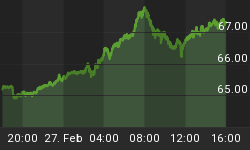A popular Wall Street myth is that bear markets are caused by recessions. The contention is as long as the economy isn't in a recession stock prices won't drop by more than 20 percent. And since the cheerleaders who dominate Wall Street never predict a recession, it should come as no surprise they never foresee the bear market that always precedes two negative quarters of GDP growth. The truth is Bear markets and recessions do not occur simultaneously, bear markets both predict and help engender a recession to occur.
Typifying this myth is Capital Economics' Chief Economist John Higgins as he recently argued, "Major declines in the S&P 500 -- that is to say, bear markets in which prices drop by at least 20%, which is roughly twice the drop that occurred between 10th and 24th August--have only tended to occur in, and around, recessions...And we doubt very much that one of those is around the corner."
But the truth is bear markets always precede a recession--those who argue otherwise have it exactly backwards. The stock market is a forward looking indicator: it anticipates economic activity yet to come, it doesn't report on economic conditions that are occurring.
Recent history proves all recessions were preceded by bear markets. Even though the market is guilty of over anticipating a recession, it has never missed predicting one.
For example, the 1987 stock crash brought the Dow Jones Industrial Average down 508 points, a decline of 23%. However, despite the market's recessionary signal, the US economy did not enter into an economic contraction at all.
Thirteen years later, record valuations drove the NASDAQ down 78% from its highs in the 2000-02 bear market. The market reached its peak on March 10, 2000, with the NASDAQ topping out at 5,132 during intraday trading. However, the economy didn't produce a negative GDP print until the first quarter of 2001. If you had waited for validation of an economic slowdown you would have lost a lot of money.
Ironically, the economy never entered a true recession with two consecutive quarters of negative GDP data. Instead, we had a negative GDP read in the first and third quarters of 2001, of -1.1% and -1.3%.
Finally, the S&P 500 peaked in October of 2007 but we didn't see consecutive quarters of negative GDP until the 4th quarter of 2008 (GDP 2008: Q3 -1.9%, Q4 -8.2%). And the recession was still in full force by the time the market reached its bottom in March of 2009. Indeed, Q1 GDP was still shrinking by a -5.4% annual rate.
The jury is still out on whether this recent market sell-off is predicting an official recession. The recent selloff that caused a 12% drop in the S&P 500 may be indeed foreboding a worldwide recession. But unlike the Wall Street carnival barkers who always have good news, the market is at the very least anticipating global economic weakness and the eventual normalization of interest rates. Investors should ignore the message of markets at their own risk.
But the biggest fallacy promulgated on Wall Street today is that the Fed won't raise rates unless, in divine fashion, it knows the economy will continue to grow at a pace strong enough to sustain a rate hike. This belief suggests the Fed is an oracle of markets.
However, history has proven that the Fed is always clueless about the economic direction. In the FOMC minutes leading up to the 2008 financial crisis, Mr. Bernanke was predicting robust GDP growth and contemplating hiking rates as late as the second quarter of 2008. By this time the markets had declined 15% from the top.
In August 2008, days before the financial markets went into in free-fall, most Fed policy makers convinced themselves that the economy had avoided the worst. Specifically, the Fed minutes from that time stated the following: "Although downside risks to growth remained, they appeared to have diminished somewhat, and the upside risks to inflation and inflation expectations increased." Nevertheless, in reality the economy was already contracting by -2.7%; and was about to enter into a deflationary depression.
The Fed's crystal ball led it to conclude the economy was on a modest growth trajectory when it was actually on the precipice of the worst decline since the Great Depression. In fact, GDP dropped a dramatic 8.2% in the fourth quarter.
Unlike free markets the FOMC has no proven predictive powers. What's worse, its models are all bogus and broken. Therefore, like the cheerleaders on Wall Street, they will have to wait for negative GDP prints before a recession emerges on their radar and for them to become negative on stocks. However, by that time it's always too late.















